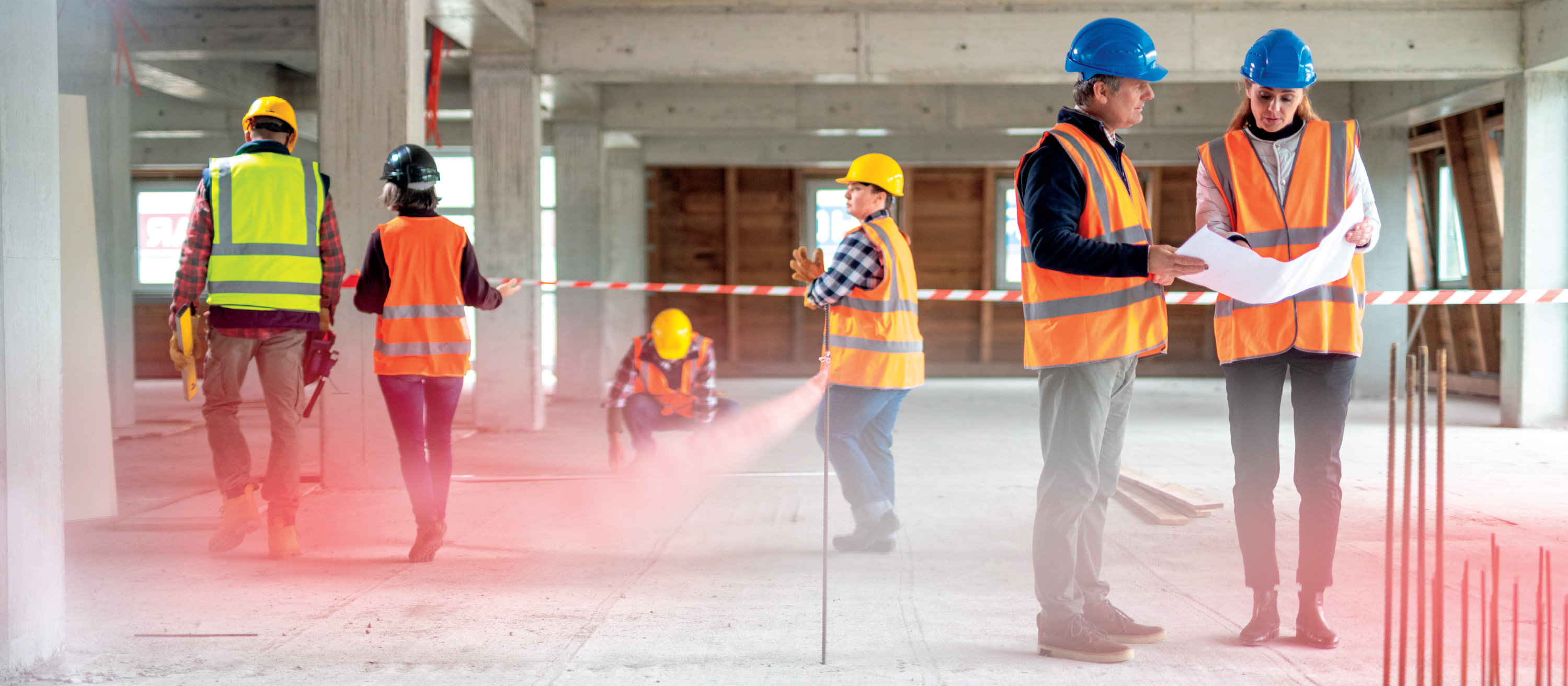Framework for Māori in high-skill roles
Understanding skills shortages experienced by Māori firms and building a framework to support Māori into high-skill roles in the sector
The issue
There is the opportunity to support more Māori into high-skill and high-earning roles in the sector, as Māori also make up a large proportion of the labouring and lower-skilled end of the workforce. In addition to earning less, these low-skilled workers have lesser job security and are most vulnerable to business cycle effects. Project also supports early research career opportunities.
Intended outcomes
- To identify the current industry trends in terms of what the industry urgently needs particular skills
- To develop a framework for supporting more Māori into high-skill roles in the industry.
The steps
- Step 1: Building off earlier co-designed work (2021 and 2022), conduct semi-structured interviews and surveys with NZ Māori construction firms.
- Step 2: Develop framework to assist Māori construction firms to overcome skills challenges.
- Step 3: Final report.
Researcher: Dr Don Samarasinghe BSc (Hons) Civil Eng, GDTE, PhD, MCIOB, PMI
I am a highly enthusiastic research and education professional with a passion for developing and unleashing the potential of tertiary students. I have a strong background in the development and delivery of quality technical learning, including Construction Technology, Building Services, Digital Built Environment, Construction Project Management and Property Development, for a range of tertiary institutions in New Zealand. My teaching philosophy is driven by Experiential Learning, where students learn through reflection on doing. I have conducted collaborative and interdisciplinary research projects and extensively published in the areas of construction technology, supply chain management and experiential learning in construction education. I have a range of academic qualifications including a PhD in Construction Management, a Bachelor of the Science of Civil Engineering (First-Class Honours), and a Graduate Diploma in Tertiary Education (GDTE).
During my PhD studies, I published widely on building materials supply chains. After gaining my doctorate, I started researching on improving supply chain performance through construction innovation. My research projects are interdisciplinary and collaborative, across disciplines such as construction innovation, IT/advanced technologies, supply chain management and construction education. I am a high performing team member who conducts collaborative research projects that connect to the community and the construction industry. I recently developed a VR-based sustainable building model with IT and Management colleagues, and the project outcomes were published by IEEE and Springer Cham, Switzerland. One of my recent publications includes a book chapter titled Innovative Digital Technologies in the New Zealand Construction Industry in the book Driving Transformational Change in the Digital Built Environment, edited by Jason Underwood and Mark Shelbourn from the University of Salford, UK. I would like to further expand my research into effective building design and maintenance practices, focusing on ways stakeholders in a building materials supply chain could collaborate to create sustainable buildings. Additional research interests are in the wider areas of construction education, experiential learning, reflective practice, improving employability through learner capability development and effective assessment practices.
I have written widely on construction technology (innovative digital technologies, HVAC, BIM and VR), supply chain management, and experiential learning in construction education. I have experience applying for both internal and external research funding (e.g. a CoRE research project proposal led by Massey University).
My current postgraduate supervision projects include QA/QC in modular fabrication, prefabrication skills shortage and design changes in EPC projects in NZ construction. I have extensive experience in curriculum design, delivery, assessment and moderation in the New Zealand tertiary education sector. This includes developing qualifications such as Bachelor of Construction, Graduate Diploma/Master of Professional Practice in Construction Management. I have taught (both face-to-face and online) papers such as Construction Technology, Building Services, Construction Innovation, Design Buildability & BIM, Programming, Quality Assurance and Site Safety, Value Management, Procurement and Tendering, Property Development and Research Project. I effectively engage with the industry by conducting construction site visits and participating in professional development activities through NZIOB, ENZ, CIOB, PMI, NZGBC, EBANZ and EBAA.
Project expected delivery date: 31 March 2024
Project Status: Complete
Contract Research Organisation: School of Built Environment, Massey University

Related projects

Active Bystanders – Kaupapa Māori research project
Developing a Kaupapa Māori Theory of Change to inform effective bystander interventions for wahine Māori
Funding of workplace training and work-integrated learning for the construction and infrastructure industries
Funding of workplace training and work-integrated learning for the construction and infrastructure industries

Supporting technical experts to become work-based trainers
Developing and trialing tools and resources that support work-based trainers to improve their practice
Evaluation of government policy settings for apprentices
Understand the extent to which government apprenticeship policy settings are working

VET in schools: towards a model for Year 12 & 13 in New Zealand schools
VET in schools: towards a model for Year 12 & 13 in New Zealand

Civil Construction: A requirement for a robust and reliable training pipeline
Providing recommendations to combat the skilled labour shortage
Investigating training advisors in work-based learning in the construction and infrastructure sectors
Analysing systemic forces for workforce development alongside
The place of micro-credentials in New Zealand
The place of micro-credentials in New Zealand

Workforce journey indicators data dashboard
A data project to understand how people navigate in and out of the construction workforce
Offsite manufacturing workforce forecast
Forecasting the size of the offsite manufacturing workforce required across the next 5-10 years
A more effective model of support for Māori Level 4 Carpentry apprentices – reducing the time it takes to get qualified
Using kaupapa Māori interventions to increase the number of qualified Māori builders

Environmental competency training
Ascertaining the specific skills required to meet the government’s environmental goals

From skilled industry practitioner to Kaiako
Analysing the current kaiako training to identify effective practices in classroom-based tertiary education
Women’s experiences working in Construction and Infrastructure
Women’s experiences working in Construction and Infrastructure
Skill standards
Good Practice in the Development and Implementation of Skill Standards-Based Qualifications
Neurodiversity
Neurodiversity
Pathways to Successful SMEs
Pathways to Successful SMEs
A Case Study: Cook Brothers Apprentice Academy
A Case Study: Cook Brothers Apprentice Academy

AI Generated Assessment
Using artificial intelligence to create high-quality, engaging, and personalised assessments
A Case Study: Augmented reality in welding training
A Case Study: Augmented reality in welding training
Future workforce skills for Māori and Pasifika owned businesses in construction
Industry Analysis
ConstrucTrend: Vocational Workforce Survey
ConstrucTrend: Vocational Workforce Survey